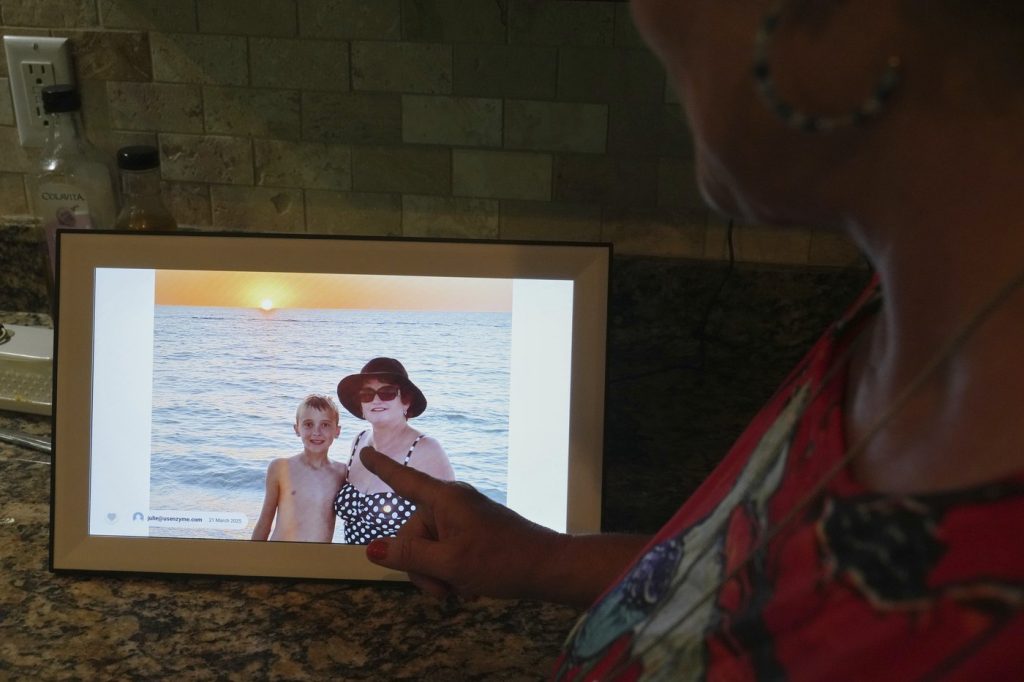GAINESVILLE, Fla. (AP) – States are tasked with the complex challenge of educating students in juvenile detention, and in Florida, the situation remains particularly dire. Last year, over 1,000 students were placed in long-term confinement, and the state opted to implement online schooling through the Florida Virtual School. This decision raised eyebrows, especially given the substantial evidence indicating that online learning was ineffective for many students during the pandemic.
The aim behind contracting Florida Virtual School, one of the oldest and largest online educational systems in the country, was to standardize educational offerings across juvenile justice classrooms. The hope was that students could seamlessly continue their education after leaving detention, potentially improving their long-term academic outcomes. However, an investigation by the Associated Press revealed that this initiative has largely failed, with students struggling to engage with their online courses while their frustration often results in further behavioral problems and extended detention periods.
Students in detention reported receiving minimal support for their online education. Interviews highlighted the difficulty of understanding the coursework, as the residential commitment centers ceased providing in-person educators for each subject, relying instead on online faculty. Consequently, the staff present in classrooms primarily functioned as supervisors and were unable to assist students effectively with their questions or challenges. Letters from incarcerated students expressed their struggles with accessing online materials and feeling unsupported in their learning endeavors.
One student lamented, “Dear Law maker, I really be trying to do my work so I won’t be getting in trouble but I don’t be understanding the work. They don’t really hands-on help me.” Another student voiced frustration, saying, “My zoom teachers they never email me back or try to help me with my work. It’s like they think we’re normal kids. Half of us don’t even know what we’re looking at.”
Students' dissatisfaction with their educational experience has led to increased incidents of misbehavior, resulting in extended detention times. For instance, those who misbehave can receive a “level freeze,” which temporarily halts their progress towards release. More severe offenses can lead to a return to county detention centers, where additional charges may be filed. The adoption of online schooling has correlated with these heightened incidents, as increased frustration with learning materials often stems from a lack of adequate support.
One teenager recounted struggling with an online pre-algebra test and ultimately throwing his desk in frustration, receiving a three to five-day level freeze as punishment. Another student, frustrated at not getting assistance, broke several laptops, which further extended his sentence. Originally sentenced to six to nine months for breaking into a vape store, his time in confinement has ballooned to a potential 28 months.
The increasing number of youths in Florida's residential commitment centers—rising to 1,388 as of June 2024, an increase of 177 since the implementation of virtual instruction—indicates a worrying trend of extended stays among detained youth. Amanda Slama, a spokesperson for the Department of Juvenile Justice, cautioned that correlation does not imply causation regarding this rise.
The transition back to school after leaving detention presents its own set of challenges. One of Florida's justifications for online schooling was that it would help students continue their education post-release, mitigating the difficulties many encounter when re-entering local public schools. However, some students have faced enrollment issues; for instance, one student was denied entry to a local middle school due to age, while another was informally told they could not enroll in Florida Virtual School late in the academic year.
While Florida Virtual claims to provide transition specialists to assist students after leaving residential facilities, some families allege they were neither informed about such resources nor made aware of specialized Florida Virtual options that would have allowed their child to continue from where they left off while in detention.











